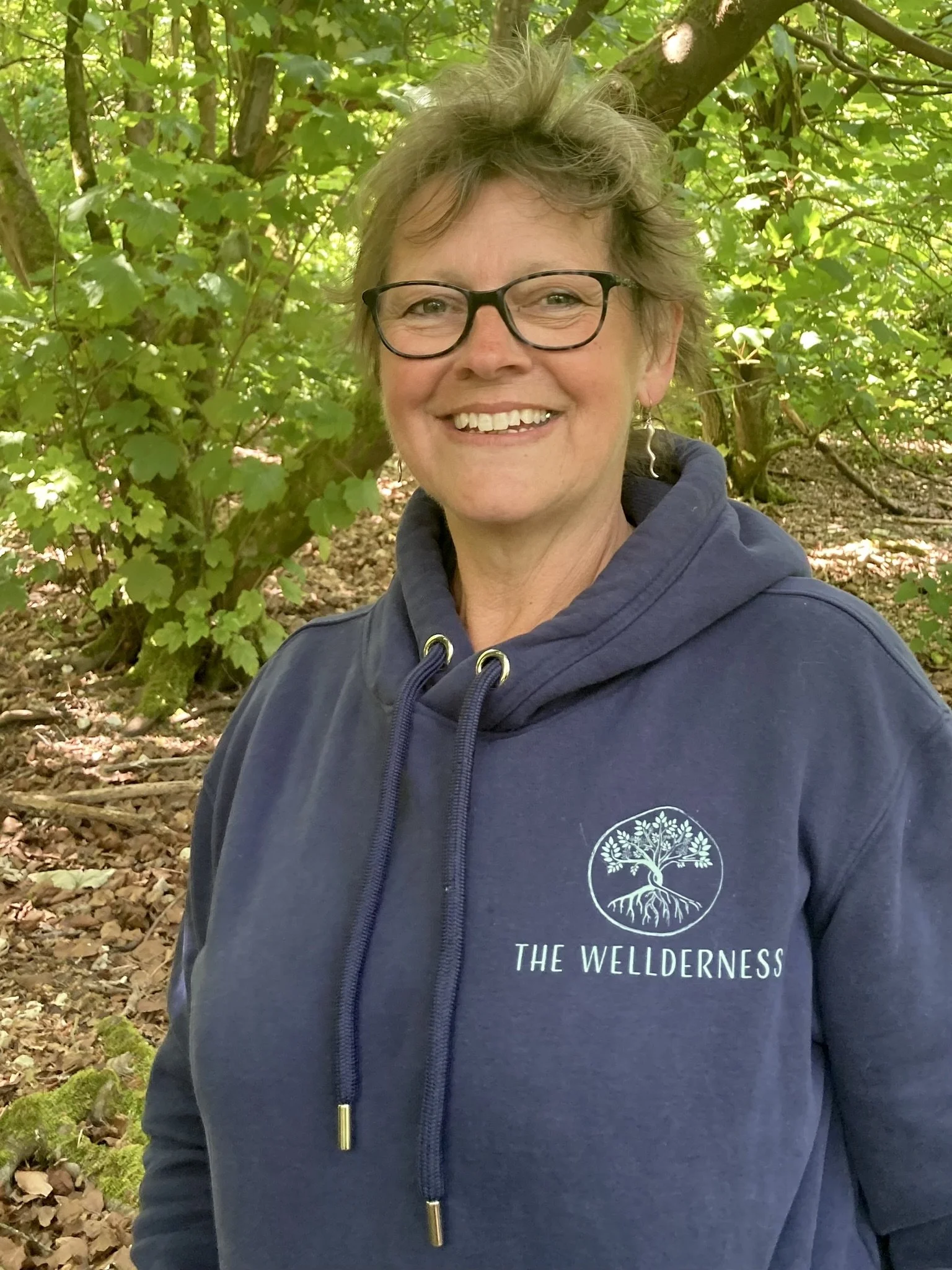The tree is temporary. The forest is forever.
In January 2021, Mark Cropley and Matt Dumbleton planted a tree. Back then, it was only a sapling. Small, vital and eager to thrive, it was given a home between the Downs and the sea.
With nourishment, it rooted and began to grow. Stretching beneath the mycelium, the roots expanded in ground made fertile by a willing community.
As the roots spread, our tree grew taller, stronger. Branches extended. The tree bore fruit and offered shade to those that gathered beneath its limbs.
We knew from the start that our tree won’t live forever. But that’s okay because we’ll continue to sow seeds, drop leaves and nourish the ground to grow a forest around us. After all, a tree on its own will be hit by every storm. A tree in the forest is protected by those that surround it.
Improving people’s lives through nature and improving nature through people.
That’s our purpose.
Because, according to The Health Foundation, mental ill health worsened for many people throughout the COVID crisis. Particularly for those who are lonely and struggling with money. And let’s face it, we can all come up against loneliness and money troubles.
From our own experience, nature is a great healer. But just as we struggle to cope with the pressures of 21st Century living, nature faces its own challenges as populations swell and people plunder the earth’s resources.
In October 2022, the World Meteorological Organization (WMO) reported that “atmospheric levels of the three main greenhouse gases - carbon dioxide, methane and nitrous oxide - all reached new record highs”.
Closer to home, the State of Woods and Trees report found that only 7% of the country’s native woodland was in a good ecological condition. With only 2.5% of the UK covered by ancient woodland, we’re putting at risk the “diverse, distinctive and valuable ecosystems” that have co-evolved in those woodlands over thousands of years.
The Wellderness tree grows against the backdrop of these challenges. We stretch our branches to catch people when their mental health drops. And, alongside our community, we nourish the ground to help nature thrive.
Spending time in nature
According to Mind, the mental health charity, spending time in nature can help your mental and physical wellbeing in many ways.
As well as improving your mood and reducing stress and anger, nature is good for your physical health.
Plus, time in nature (especially in the Wellderness) can bring the community together, and that helps you feel less lonely.
Of course, it also helps you reconnect with nature itself, which has its own benefits.
Reconnecting with nature
Research by the Mental Health Foundation shows that the more people connect with nature, the happier they are in life. They’re also “more likely to report feeling their lives are worthwhile.”
But there’s more to it than that. A closer relationship with nature changes your view of the environment, in a good way. Because of that, you’ll want to look after the natural world around you, even more than you already do.
When you add the wellbeing benefits to the positive impact on the wilderness, it’s clear why reconnecting with nature is so important to the Wellderness.
And as you look after the natural world and your own mental health, you have a chance to learn and discover so much more.
Social connection
It wasn’t so very long ago that humans were hunter gatherers. Living communally, we knew we were part of nature, rather than believing we’re separated from it.
Throughout the advent of agriculture and industry, we moved away from this existence. Since technology arrived, we’ve shut ourselves away even more. The loneliness many of us experience now is a symptom of modern life. Community provides a cure.
That’s why we’re planting a forest around our tree. And we invite you to plant a tree of your own.
New skills and experiences
Learning is one of the Five Ways to Wellbeing. This doesn’t mean formal education and exams - although there’s nothing wrong with that, if it’s what you want.
More important is to find activities that offer intrinsic value (things you love to do, rather than things you have to do). Activities like foraging help you connect with nature and teach you about the bounty to be found in our hedgerows and woodland.
Plus, it offers a great chance to connect with other people and share your experience with the wider community.
Though we’re at home outdoors, we also sow seeds online
Our roots reach through the virtual mycelium and connect our community together. There, we share our love of the outdoors, and create corridors where nature can flourish.
In our online wilderness, we take Walks on the Wellside, meditate on Minutes of Mindfulness and celebrate nature’s beauty. You’ll find tips on foraging and thoughts on mental health and wellbeing. You’ll indulge in nature’s splendour and you’ll see the Wellderfolk shine - and they shine brightly!
And if you really like what we do, online is where you’ll find tickets to our events.
Positively affecting the lives of 10 million people
The Wellderness started with a single sapling. Not a real one, they came later. This sapling was figurative. Its seed was planted many years ago, in our collective love of nature and in our community spirit.
The Wellderfolk (as we call our community) gave fertile ground for the sapling to grow. And together, we nurtured that tiny tree as it spread skywards and pushed out strong branches.
Like any other deciduous tree, it sheds leaves to nourish the ground, and drops seeds to give life a chance. And from those seeds, new trees have already begun to grow.
Which is just the beginning. We want to touch the lives of 10 million people, and that’s going to take a forest.
And while each tree will be temporary, the forest is forever.
That’s our 1,000-year legacy.
Meet the Team















